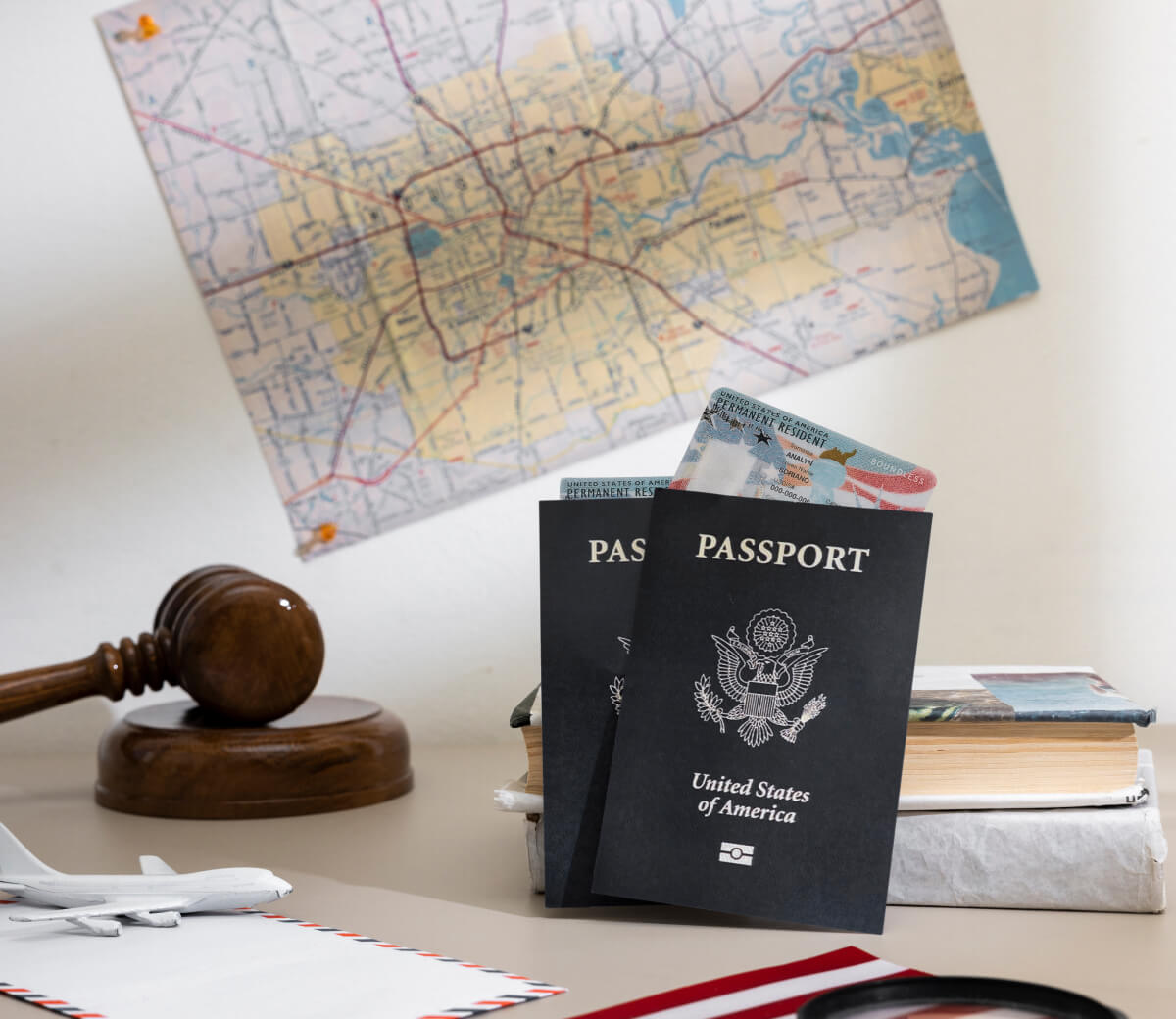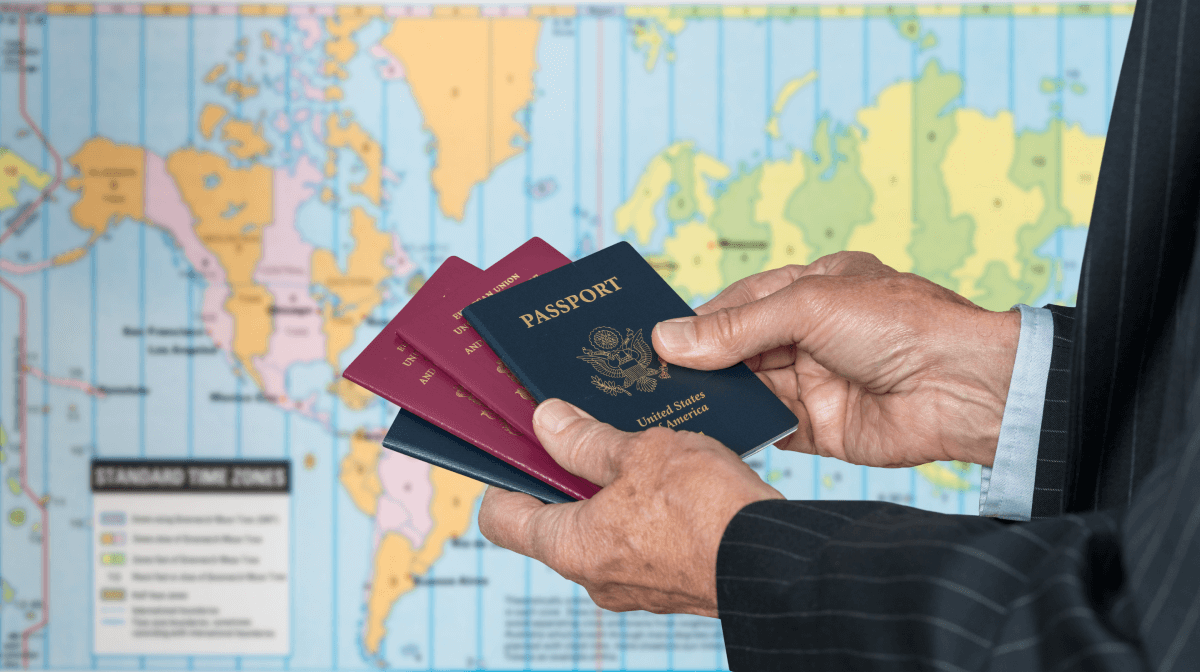
Pros and Cons of Dual Citizenship and Residency
Dual citizenship sounds powerful and prestigious. It gives you the feeling of having more freedom of choice and movement. You can be a citizen of two countries at the same time, which is a rewarding title. In the long run, the benefits of dual citizenship are sufficient and worth considering proper actions towards it.
However, important factors must be considered. Understanding the pros and cons of dual citizenship can help you make an informed decision.
What Is Dual Citizenship?
Dual citizenship, or dual nationality, allows individuals to hold citizenship in two countries simultaneously. You can obtain this legal status through various means, including birth, marriage, or citizenship through naturalization. Each method comes with its own set of requirements and implications.
Acquiring citizenship of a country can often lead to many advantages. It can provide a sense of belonging and identity. However, it may also come with responsibilities that need to be fulfilled.
The Differences Between Residency and Citizenship

Before diving deeper, it's important to understand the distinction between residency and citizenship.
Residency grants you the right to live and work in a country, usually through visas or permanent resident status. However, residency does not offer full citizenship rights. Residents may face limitations, such as restrictions on voting or accessing certain government benefits.
On the other hand, citizenship provides full rights within a nation. As a citizen, you can vote, hold public office, and access various government services. Citizens can also obtain a passport for international travel, significantly simplifying travel plans.
How to Acquire Dual Citizenship
Acquiring dual citizenship can be achieved in several ways:
![]()
Birth:
If your parents hold different nationalities, you may automatically have dual citizenship at birth. This is often the case when a child is born in a country that recognizes dual nationality.
![]()
Marriage:
Many countries grant citizenship to foreign spouses of their citizens. This pathway often allows you to retain your original nationality while becoming a citizen of your spouse's country.
![]()
Naturalization: This method involves fulfilling specific residency requirements. After living in a country for a certain period, you may be eligible to apply for citizenship. Requirements often include language proficiency and knowledge of the country's history and government.
![]()
Citizenship by Investment Programs:
Some nations offer pathways for obtaining citizenship through significant financial contributions. This is an attractive option for many foreign nationals seeking a second passport. For intsance, Türkiye , has a very appealing citizenship by investment program.
Are you considering dual citizenship? Before making a decision, it's essential to grasp the advantages and challenges. Let’s dive into this unique opportunity's compelling benefits and potential drawbacks, structured for clarity and impact.
The Pros of Dual Citizenship

![]()
Freedom of Movement
Dual citizens can travel freely between two countries without needing visas. This opens up a world of opportunities for international travel and residence.
![]()
Access to Social Services
As a citizen of a country, you gain access to essential social services, including healthcare and education. This access significantly enhances your quality of life and provides security for you and your family.
![]()
Increased Economic Opportunities
Holding dual citizenship allows you to work in multiple job markets. Diversifying career options can lead to greater financial prospects and job satisfaction.
![]()
Cultural Connections
Dual citizenship helps you maintain strong cultural ties. You can preserve your heritage and connect with family members across borders. This dual connection enriches your life and provides a sense of belonging.
![]()
Potential Tax Advantages
Some dual citizens benefit from tax treaties between countries. These agreements can help reduce your overall tax liabilities, simplifying financial planning.
![]()
Enhanced Legal Status
As a naturalized citizen, you have a more secure legal status than a permanent resident. This status provides greater protection against deportation and other legal challenges.
The Cons of Dual Citizenship
![]()
Double Taxation
One significant drawback is the possibility of double taxation. Depending on tax laws and treaties, you might be required to pay taxes in both countries. This situation can complicate financial management and lead to higher tax burdens.
![]()
Military Obligations
Some countries require citizens to fulfill military service. Dual citizens may face the obligation to serve in both nations, which can create conflicts and challenges.
![]()
Complex Voting Rights
Voting rights can be complicated for dual citizens. While you generally have the right to vote in both countries, specific regulations may apply. Understanding your rights and responsibilities in each nation is essential.
![]()
Restrictions on Government Positions
Certain high-level government roles may restrict dual citizenship. These positions often need full loyalty to one country. This can limit your chances for advancement if you have citizenship in another nation.
![]()
Non-recognition of Dual Citizenship
Not all countries recognize dual citizenship. Some may require individuals to renounce their original citizenship upon naturalization. Researching the laws of both countries is vital to avoid surprises and ensure compliance.
Potential Complications with Permanent Residency
Managing obligations can become complex for individuals with permanent resident status in another country. You may need to navigate various legal requirements, which could lead to challenges.
The Naturalization Process

The process of citizenship through naturalization is often lengthy and complex.
First, you must establish legal residency in the new country. Each nation has specific residency requirements to be met before applying for citizenship. This period can range from a few years to over a decade.
Next, applicants may face language and civic knowledge tests. You must demonstrate proficiency in the official language and pass examinations on the country's history and government. These steps ensure that new citizens are informed and integrated into society.
Another crucial part of the naturalization process involves background checks. You must typically have a clean criminal record and pass security screenings. This helps maintain public safety and ensures new citizens contribute positively to society.
Once you meet all requirements, you will take an oath of allegiance. This is a significant moment that marks your commitment to your new country. After taking the oath, you officially become a citizen.
Important Considerations
Before pursuing dual citizenship, it's vital to fully understand the laws of both countries. Researching each nation’s requirements and obligations can prevent wrong decisions. Consulting with immigration professionals can provide clarity and guidance throughout the process.
Conclusion
In summary, dual citizenship offers numerous advantages, including increased freedom and service access. However, it also comes with responsibilities and potential drawbacks. Understanding the pros and cons of dual citizenship is essential for anyone considering this path. Whether you are exploring citizenship through naturalization or the benefits of holding two citizenships, knowledge is your greatest ally.
The journey to dual citizenship can be both rewarding and complex. By staying informed and seeking expert advice, you can navigate this intricate process. With the right preparation, you can enjoy the many benefits of being a citizen of two nations.
For any inquiries or further information, feel free to reach out to the Wealth Consulting team:
Book a Call with our experts to discuss your financial needs and explore personalized solutions.
